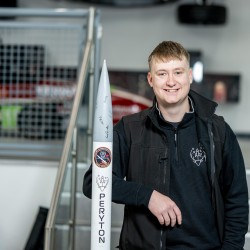UK students to launch international space mission
A team of students from the University of Surrey, the University of Portsmouth and the University of Southampton are working to fit equipment they designed, made and tested to a suborbital launch vehicle which aims to launch 500km into space.
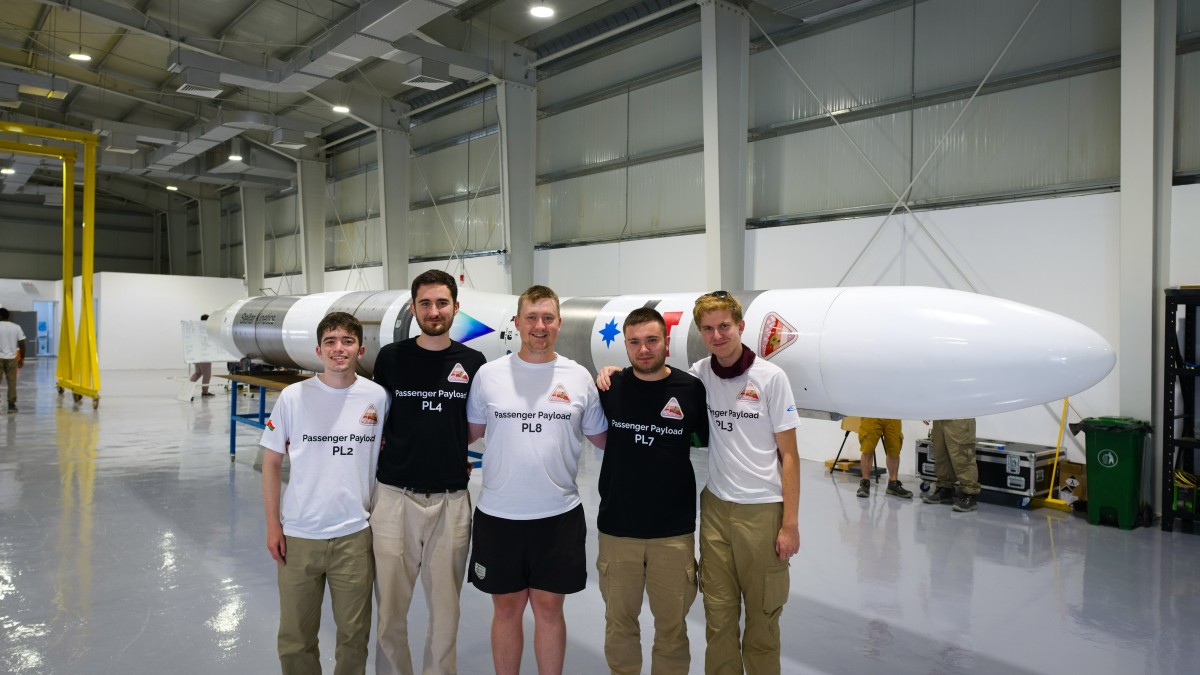
From left to right: Ewan Radford, Alejandro Parra Pintado, Ieuan Carney, Harvey Nixon, Caspar Pierce.
Six students have travelled to the Etlaq Spaceport in the region of Duqm in Oman, from where their Jovian-O payload is scheduled to launch on the KEA-1 launch vehicle, made by Stellar Kinetics, as part of the Duqm-2 mission.
Jovian-O is a 6U CubeSat – a type of small satellite, roughly the size of a shoebox – consisting of a prototype deploy pod designed by students at the University of Surrey and built on campus. The payload also contains DAVE (Dual Aperture for Viewing Earth), the Earth observation instrument delivered by students from the three universities. DAVE incorporates two small cameras, one of which aims to take images and videos of the Earth, and one which will attempt to use a space-facing camera to look for space debris.
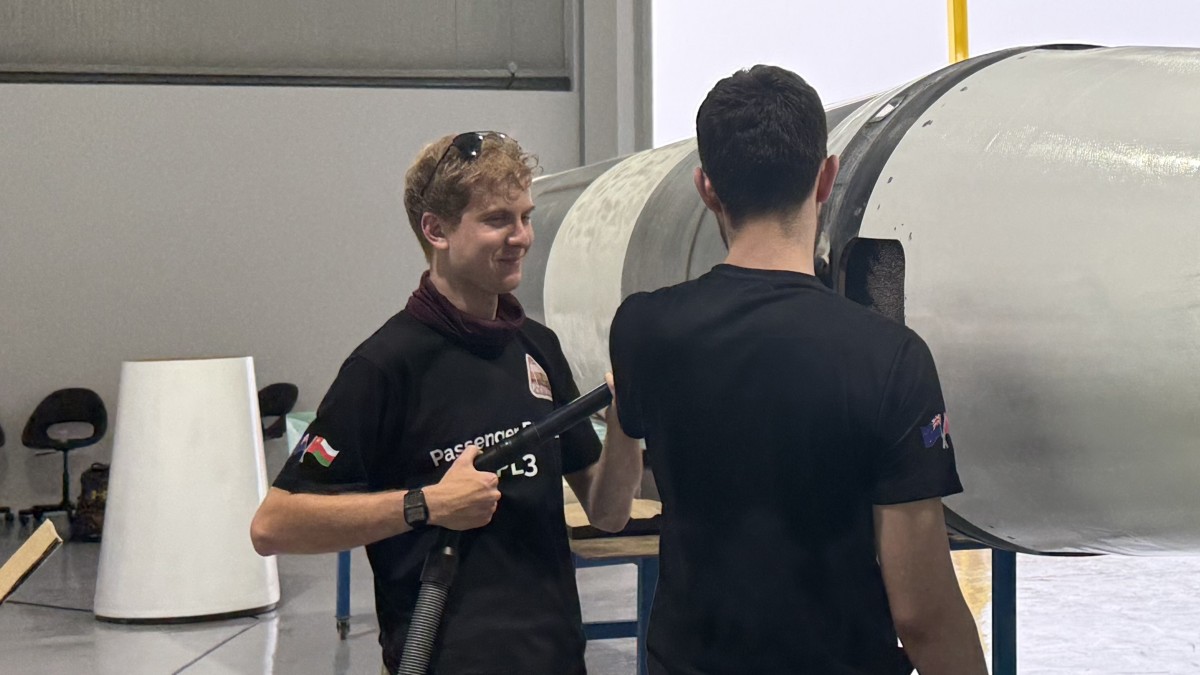
After launch, the deploy pod will then release DAVE and film, demonstrating its suitability for use on future orbital missions. For this test, DAVE will remain tethered to the deploy pod and rocket while capturing visual data, which will be transmitted back to Earth and received via a mobile ground station operated by the student team using communications technology from AMSAT-UK.
This is the first mission to launch under the Joint Universities Programme for In-orbit Training, Education and Research, JUPITER, which Space South Central supports. This collaborative initiative equips students with practical, real-world space industry experience and training, enhancing their career prospects and helping to address skills gaps in the space sector in Surrey and Hampshire – and beyond.Louise Butt, Director of the Space South Central Enterprise Network
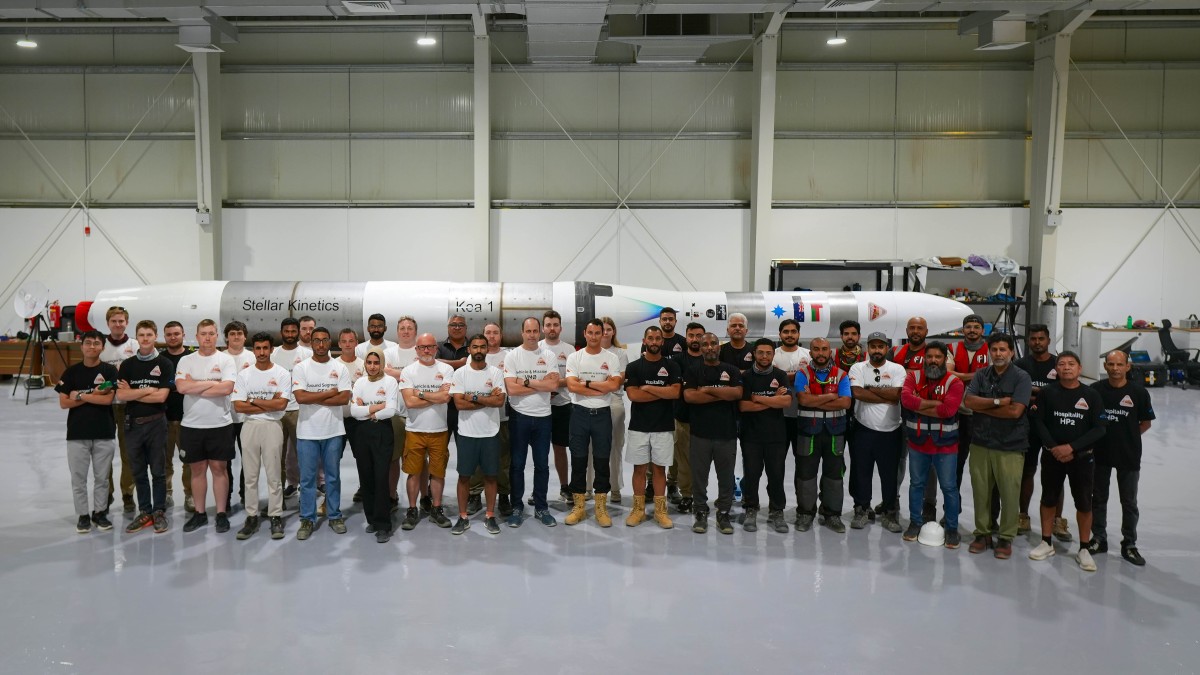
The JUPITER programme, now with its first launch, is a very exciting opportunity for our students to build and launch their own satellite, to learn about the design, build, test and the launch process in the space sector, to address some key space skills shortages in the UK, and I hope to have a lot of fun doing so.Dr Becky Canning, Deputy Director for Space at the University of Portsmouth
Jovian-O is a bold initiative accelerating access for a new generation of engineers in the space industry. This hands-on experience is giving our students the opportunity to build their skills and industry connections early. With DAVE heading out of our atmosphere and plans for annual JUPITER launches, the future of student-led space exploration is just beginning.Professor Hendrik Ulbricht, University of Southampton
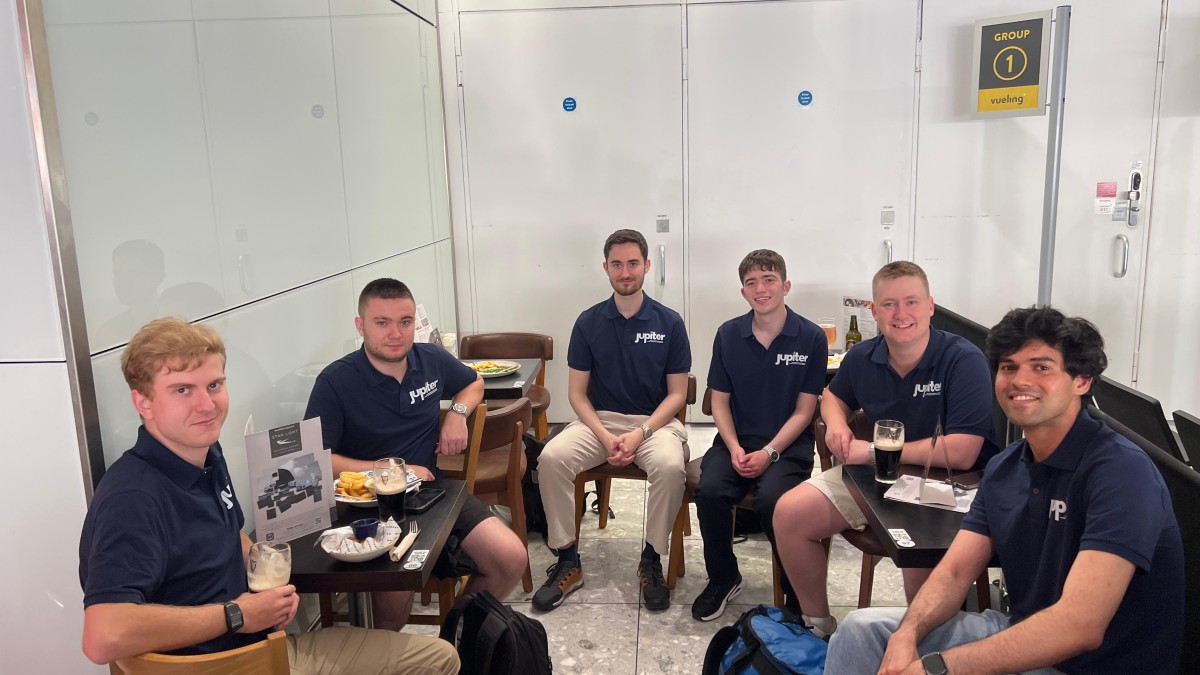
###
Notes to editors:
- A team of 22 students from the three universities have been involved with JUPITER with six of those travelling to Oman for the final stage of this project. Ieuan Carney has led the student team throughout. A University of Surrey graduate with an MEng in Electronic Engineering with Space Systems, he is now a PhD student at Surrey researching spacecraft deployables. Ieuan is an active member of Peryton Space, Surrey’s student space society, and helped his team win the Best Satellite Award in the UKSEDS Satellite Design Competition in 2023.
- For more information about Etlaq Spaceport and Stellar Kinetics, visit www.etlaq.om/launches/duqm-2
- To contact Stellar Kinetics, visit https://www.stellarkinetics.space
- For more information about JUPITER, visit www.spacesouthcentral.com/jupiter
Related sustainable development goals

Featured Academics
Media Contacts
External Communications and PR team
Phone: +44 (0)1483 684380 / 688914 / 684378
Email: mediarelations@surrey.ac.uk
Out of hours: +44 (0)7773 479911

